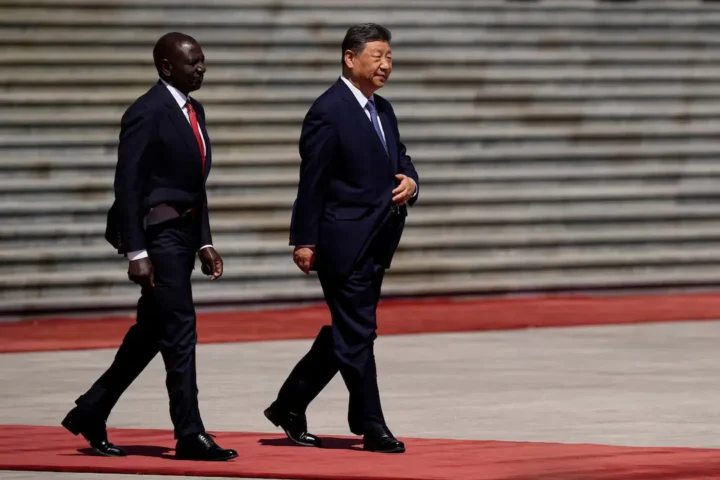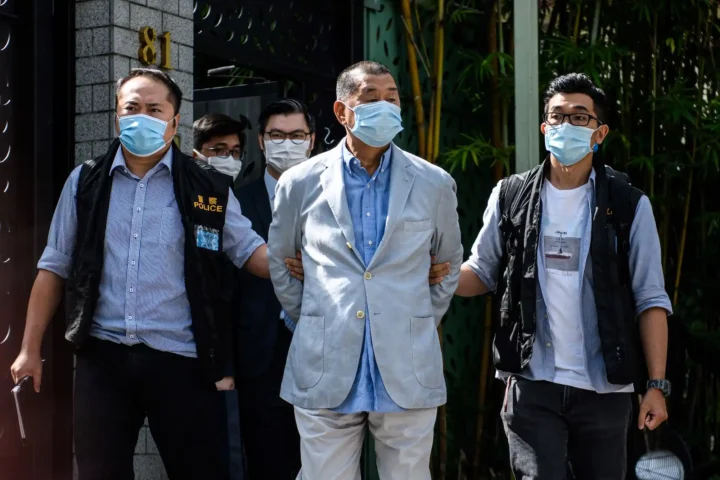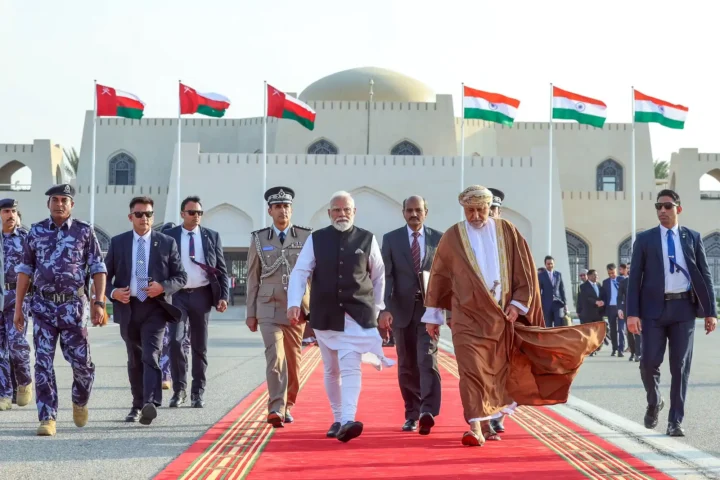The New York Times recently reported, “Pakistan’s powerful army chief secured expanded powers and lifelong legal immunity on Wednesday when lawmakers approved a constitutional amendment, a move that concentrates military control and tightens political influence over the judiciary.” This sweeping 27th Amendment fundamentally alters Pakistan’s democratic architecture by centralizing military command under one individual, while also undermining judicial independence and provincial autonomy—signaling a dangerous slide toward authoritarianism that echoes the historical patterns of democratic erosion seen worldwide. This op-ed explores the profound implications of this shift for Pakistan’s political trajectory and the wider lessons it holds
The Anatomy of the 27th Amendment
Pakistan’s 27th Constitutional Amendment fundamentally restructures the nation’s power base. It elevates the Army Chief (currently Field Marshal General Asim Munir) to the newly created post of Chief of Defence Forces (CDF), placing the army, navy, and air force under his command. The CDF receives lifelong rank, privileges, and legal immunity from prosecution—a stunning departure from norms of democratic accountability. Simultaneously, the amendment dissolves the Joint Chiefs of Staff Committee and re-engineers revenue-sharing arrangements to reduce the financial empowerment of provinces.
Pakistan’s army chief, Field Marshal Asim Munir, has just been granted sweeping new powers and lifelong immunity, cementing the military’s dominance over the country’s political and judicial systems.
— Washington Report (@Washington_Rep) November 14, 2025
🔑 What Changed
– New Title – Chief of Defence Forces (CDF): Munir is…
Equally troubling is the restructuring of Pakistan’s judicial system. The Supreme Court is sidelined from constitutional cases, with jurisdiction moved to a new Federal Constitutional Court whose judges will be appointed by the executive. This fast-tracks a system where the highest authorities in the land—the CDF and the new court—become answerable not to the people or parliament, but to the prime minister and a tightly knit executive-military alliance.
Centralization and the End of Checks and Balances
The centralisation of military command and the erosion of judicial independence represent a sharp break from the principle of separation of powers. In any functioning democracy, the civilian government, judiciary, and provinces serve as checks on each other’s authority. But the 27th Amendment has upended this architecture, formalizing the military’s dominance and enabling the executive to manipulate judicial appointments at will.
Constitutional amendments of this sort are not mere bureaucratic tweaks—they often leave lasting scars. By vesting sweeping powers and lifelong immunity in the Army Chief, Pakistan risks embedding militarization into the fabric of governance, making future reforms or reversals exponentially more difficult. The amendments also diminish provincial autonomy, deepening discontent in already restive regions like Balochistan and Sindh, and undermining the social contract forged by Pakistan’s earlier democratic reforms.
Regional Implications of a Military Ruled Pakistan
While establishment voices are trying to justify this consolidation as enhancing command efficiency and state stability, it effectively ushers in de facto military rule.
This article claims I said Pakistan’s 27th amendment may bring long term stability.
— Michael Kugelman (@MichaelKugelman) November 14, 2025
That is completely false. I never said such a thing. In fact I was never contacted by Geo to comment on this.
My comments on the amendment have not been complimentary. https://t.co/h2DnH9W3Gz
This concentration of decision-making authority heightens the risk of unchecked foreign policy decisions at a time when Pakistan faces numerous internal and external security challenges. Key regional concerns include nuclear command now resting in the hands of a single individual, escalating fears of precipitous crisis decisions, and eroding prospects for multilateral conflict de-escalation. Within Pakistan, while dissent is suppressed, insurgencies in Balochistan and Khyber Pakhtunkhwa are likely to intensify, risking state fragility with potential spillover effects into neighboring Afghanistan.
“The changes made to the judicial system in the 27thamendment are alarming,” said Santiago Canton, ICJ’s Secretary-General. “They will significantly impair the judiciary’s ability to hold the executive accountable and protect the fundamental human rights of the people of… https://t.co/fFgketB4kn
— Mehlaqa Samdani (@MehlaqaCAPJ) November 13, 2025
Pakistan’s approach to its neighbors and major powers reflects this new centralized dynamic. With Pakistan’s military leadership adopting a more assertive stance against the Taliban and perceived threats along the western border, border clashes could increase, exacerbating regional instability. India remains a critical flashpoint, as analysts caution that Munir, ideologically driven and anti-India, now enjoys unchecked authority to authorize covert operations or proxy aggression under the shield of nuclear deterrence and presumed U.S. acquiescence. Meanwhile, China continues to underpin Pakistan’s economic and military framework, ensuring continuity of strategic initiatives such as the China-Pakistan Economic Corridor. Together, these factors intensify Pakistan’s role as a pivotal chess piece in broader US-China and Iran-related geopolitical contests, with unpredictable consequences for South Asian peace and stability.
Historical Precedents: How Democracies Backslide
History is replete with instances where military expansion and constitutional manipulation have derailed democracy:
- Chile (1973–1990): After seizing power, Chile’s military created legal provisions granting immunity for abuses, manipulated electoral systems to block reform, and placed military loyalists in legislative positions. Democracy was shelved for decades as civic institutions hollowed out.
- Peru (1990s): Peru’s democracy faltered when President Fujimori granted unilateral amnesty to the military and police for rights abuses, stacked courts with loyalists, and manipulated electoral mechanisms, culminating in a system where power resided in the executive-military nexus rather than parliament or society.
- Brazil (2019–2022): The Bolsonaro administration militarized federal agencies, appointed officers to civilian roles, and cited constitutional order to enable military oversight of civilian affairs. Media freedoms and judicial autonomy declined, paving the way for increased repression and authority consolidation.
- Zambia (2016): Constitutional reform expanded presidential control over judicial appointments and parliamentary affairs, eroding the system’s independence and accelerating democratic backsliding.
These examples show that the centralization of military or executive power rarely ends with one individual or moment—it often gives rise to enduring authoritarian regimes, weakened institutions, and sustained repression.
The Slide Toward Authoritarianism in Pakistan
Pakistan is no stranger to military influence in politics, but the 27th Amendment marks a new phase in the country’s democratic regression. Not only does it concentrate all military and executive power in one office, but it also co-opts the judiciary and subverts federalism. The move follows a period where major opposition parties have been dismantled, prominent leaders remain imprisoned, and media freedoms are curtailed.
Absolute control is an illusion. True power cannot be achieved by rigging the system. Authority derived from the 27th Amendment is not strength, it is a desperate attempt to avoid the inescapable. #ایسے_دستور_کو_میں_نہیں_مانتا pic.twitter.com/NUfi0IW1ss
— PTI UK (@UKPTIOfficial) November 13, 2025
According to senior diplomats like Ashraf Jehangir Qazi, this amendment “damages, even demolishes, the basic structure of Pakistan’s constitution,” making civilian rule largely a facade for military authority. Critics view this as a “constitutionalization of militarization,” arguing that once entrenched, such systems become virtually impossible to dismantle.
U.S. Complicity and Geopolitical Calculations
U.S. President Donald Trump’s personal and public embrace of Field Marshal General Asim Munir appears to have sent an implicit signal of approval for the constitutional overhaul. Trump repeatedly referred to Munir as “my favourite Field Marshal” and hosted him at the White House—an unprecedented level of access for a serving foreign military chief. These encounters have been interpreted by many commentators as a green light for Munir to advance his authoritarian consolidation without fear of U.S. attention or reprisal. Prominent Indian analysts argue that this personal endorsement emboldened Munir’s push for expanded powers, further eroding Pakistan’s democratic institutions.
#PAKWatch🇵🇰: Pakistan signed a series of high-priced lobbying contracts worth millions of dollars to buy Trump's support.
— Steve Hanke (@steve_hanke) November 15, 2025
The corrupt Pakistanis know how to play the game.
YOU'VE GOT TO PAY TO PLAY.https://t.co/kQgteUt1j9
This episode fits within a broader historical pattern where Washington has prioritized strategic considerations over democratic values in Pakistan. Throughout the Cold War and beyond, the U.S. consistently backed military strongmen—be it Ayub Khan against communist influence, Zia-ul-Haq during the Soviet-Afghan conflict, or Musharraf after 9/11. The 27th Amendment similarly passed without a peep of official criticism from Western capitals, with outlets like The New York Times describing the White House’s silence as “business as usual.” The United States appears comfortable with a centralized military command structure in Pakistan, viewing it as expedient for a strategic counterweight in broader geopolitical contests.
Under the Trump administration, Pakistan’s military-dominated governance is viewed less as democratic erosion and more as geopolitical utility. Munir’s consolidated control makes Pakistan a more “reliable” and predictable partner amid intensifying great-power competition, including efforts to scrutinize China’s flagship CPEC project or leverage Pakistan in any potential Iran-related escalations. Some analysts speculate that Washington prefers a stable, authoritarian Pakistan over a fractious civilian government to ensure alignment with its regional contingencies—even if that means overlooking authoritarianism. This stance is inviting sharp criticism, warning that it effectively enables a nuclear-armed regime hostile to India and civically repressive at home.
Lessons for Policymakers and International Stakeholders
Pakistan’s democratic erosion holds urgent lessons for the international community:
- Concentration of power in the military or executive, especially through constitutional amendments, threatens long-term stability and governance.
- The marker of a healthy democracy is robust institutional checks, a free judiciary, and autonomous provincial governments. Weakening these pillars invites authoritarian rule.
- Once militarization is constitutionalized, the reversal of authoritarian structures becomes a generational struggle, not a matter of electoral cycles.
- International partners and multilateral organizations should prioritize support for judicial independence, provincial autonomy, and media freedoms—grounding strategic relationships in the principles of democratic governance and the rule of law.
If the 27th Amendment sets a precedent, Pakistan risks entering a “constitutional barracks” era, where the uniform outlasts the ballot and power answers only to itself. The consequences—greater repression, reduced accountability, and deepening regional divides—will haunt Pakistan’s political landscape for years to come. The ghost of democratic promise, now flickering, will require extraordinary civic effort and external advocacy to reignite.
References and Further Reading
- Al Jazeera. (2025, November 12). How would Pakistan’s 27th Amendment reshape its military and courts? Al Jazeera. https://www.aljazeera.com/news/2025/11/12/how-would-pakistans-27th-amendment-reshape-military-courts
- Arab News. (2025, November 10). Lawmakers at Pakistan’s Senate debate 27th constitutional amendment. Arab News. https://www.arabnews.com/node/2025-11-10-pakistan-27th-amendment
- BBC News. (2025, November 14). Pakistan’s army chief gets more powers and lifelong immunity. BBC. https://www.bbc.com/news/world-asia-2025-11-14-pakistan-army-chief-powers
- Dawn. (2025, November 9). Analysis: One chief to rule all military services. DAWN. https://www.dawn.com/news/1953913/analysis-one-chief-to-rule-all-military-services
- Gulf News. (2025, November 12). How Pakistan Army Chief Asim Munir gets expanded powers. Gulf News. https://gulfnews.com/world/asia/pakistan/how-pakistan-army-chief-asim-munir-gets-expanded-powers-1.1723456
- Harvard ReVista. (2002, December 7). Democracy and the Military. ReVista: Harvard Review of Latin America. https://revista.drclas.harvard.edu/book/democracy-and-the-military
- Khaama Press. (2025, November 10). Pakistan’s Democratic Erosion: Military Power Rises, Civilian Rule Declines. Khaama Press. https://www.khaama.com/2025/11/10/pakistans-democratic-erosion/
- New York Times. (2025, November 12). Pakistan’s Army Chief Gets Expanded Powers and Lifelong Immunity. NYT. https://www.nytimes.com/2025/11/12/world/asia/pakistan-army-chief-powers.html
- Reuters. (2025, November 12). Pakistan parliament approves more powers for army chief, judiciary changes. Reuters. https://www.reuters.com/world/asia-pacific/pakistan-parliament-approves-more-powers-army-chief-2025-11-12/
- The Tribune (Pakistan). (2025, November). Opposition blasts authoritarian assault on judiciary. The Tribune. https://tribune.com.pk/story/2576889/opposition-blasts-authoritarian-assault-on-judiciary
- Dawn. (2025, November 10). Slide into authoritarianism – Newspaper – DAWN.COM. DAWN. https://www.dawn.com/news/1954232/slide-into-authoritarianism
- PGAction. (2023, August 15). Erosion of democratic principles. PGAction. https://pgaction.org/2023/08/erosion-democratic-principles/
- Carnegie Endowment for International Peace. (2025, April 27). Democratic Recovery After Significant Backsliding. Carnegie. https://carnegieendowment.org/2025/04/27/democratic-recovery-after-significant-backsliding-pub-84892
- Democratic Erosion. (2023, October 10). Shifting Power Dynamics after the 2021 Military Coup. Democratic-Erosion.com. https://democratic-erosion.com/2023/10/10/shifting-power-dynamics-2021-military-coup/
- Times of Oman. (2025, November 12). Pakistan passes 27th amendment: Army chief Asim Munir’s powers expanded. Times of Oman. https://timesofoman.com/pakistan-passes-27th-amendment-asim-munir-powers-expanded
- NewsWriters.in. (2025, November 6). How Pakistan’s 27th Amendment Could Turn a Failing Democracy Into Military Rule. NewsWriters. https://newswriters.in/2025/11/06/how-pakistans-27th-amendment-could-turn-democracy-military-rule/
- Carnegie Endowment for International Peace. (2023). Democracy and the Military. Carnegie. https://carnegieendowment.org/2023/01/05/democracy-and-military-pub-89658











